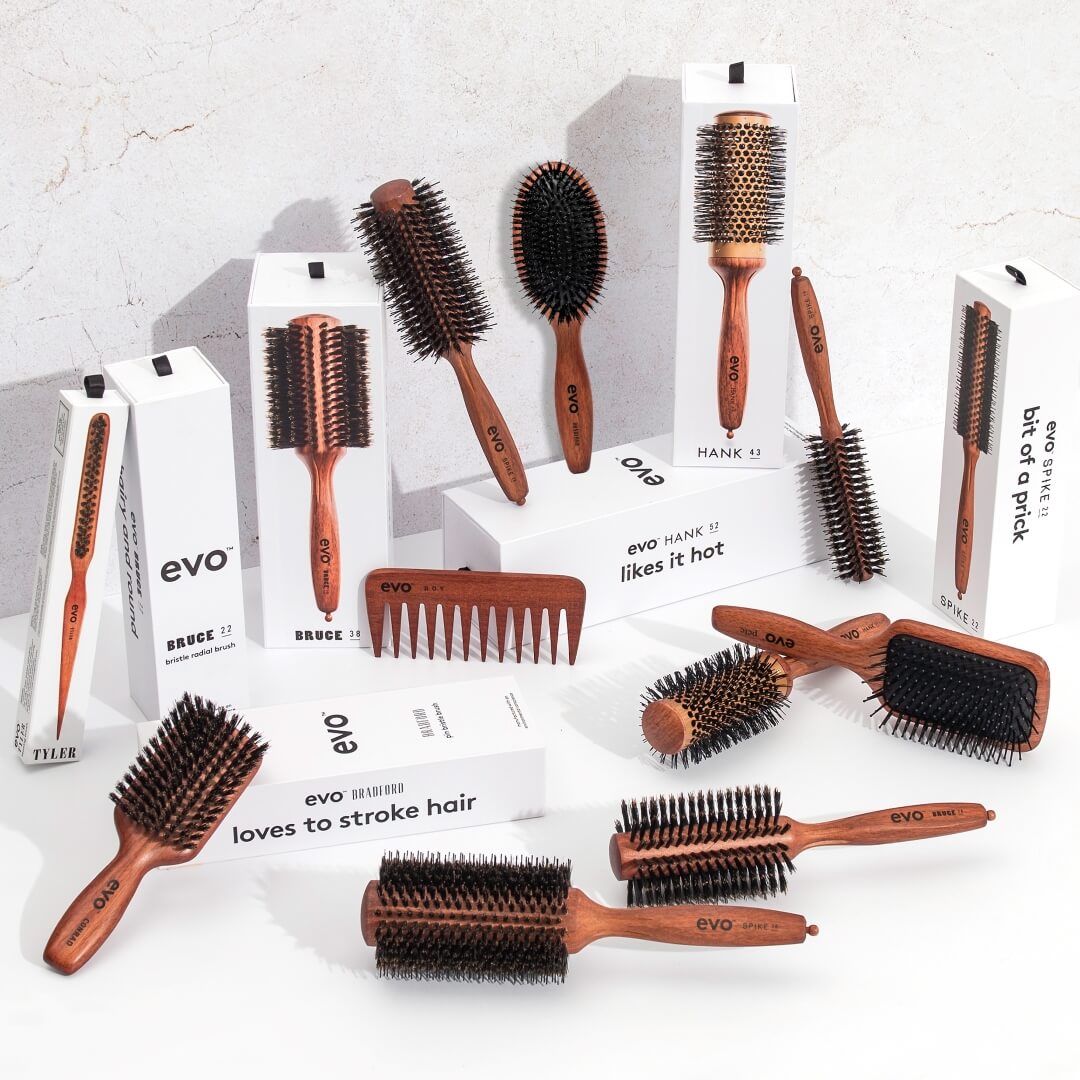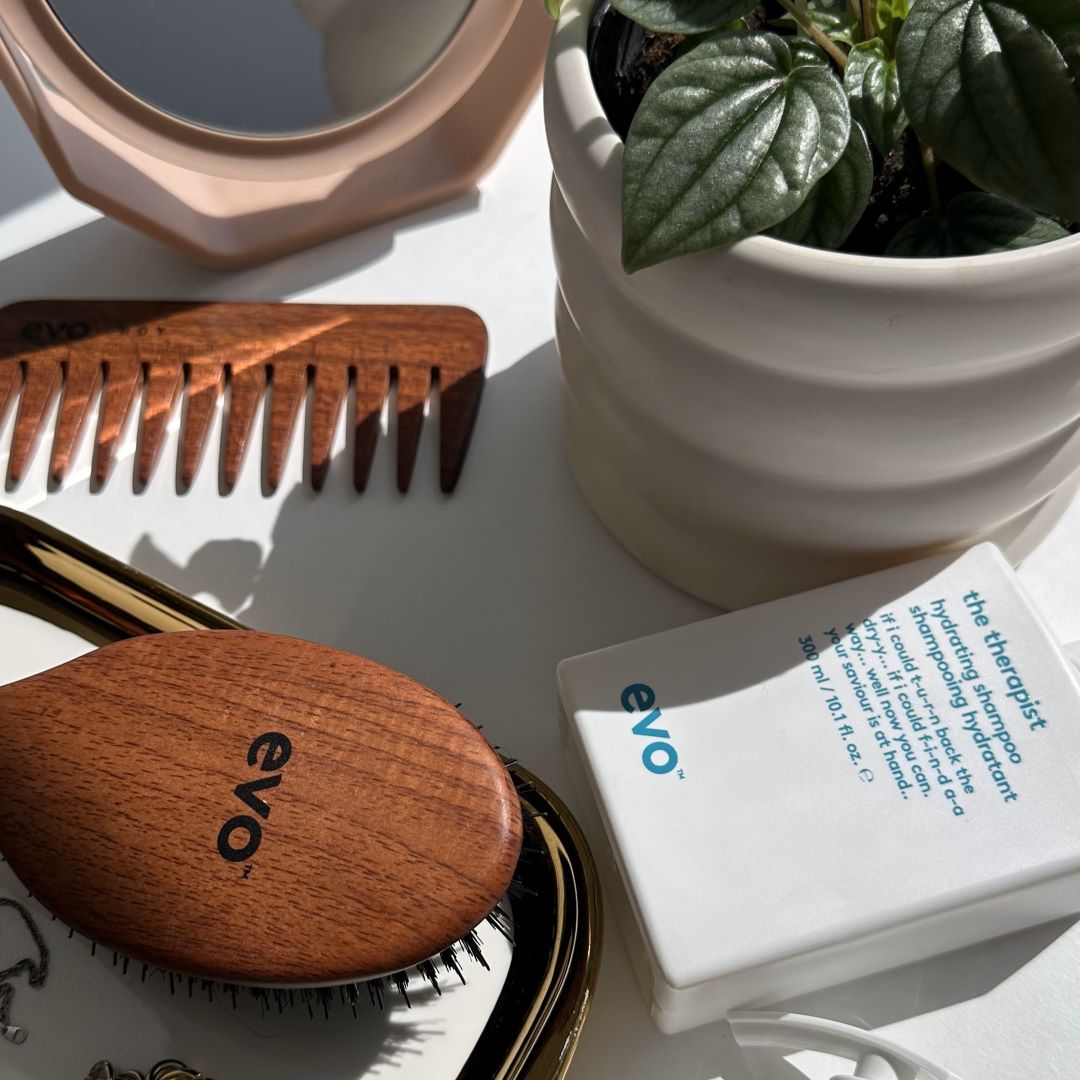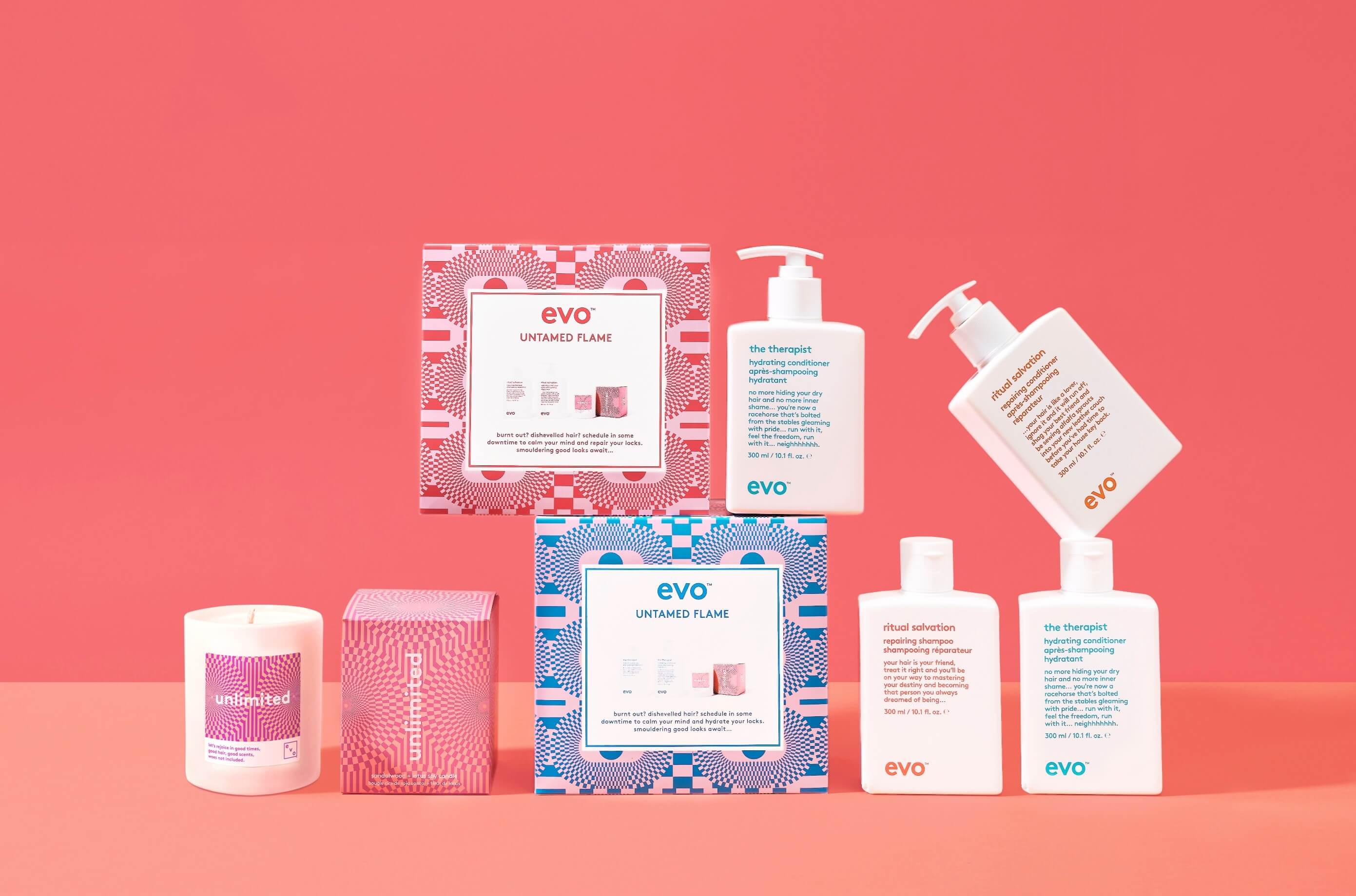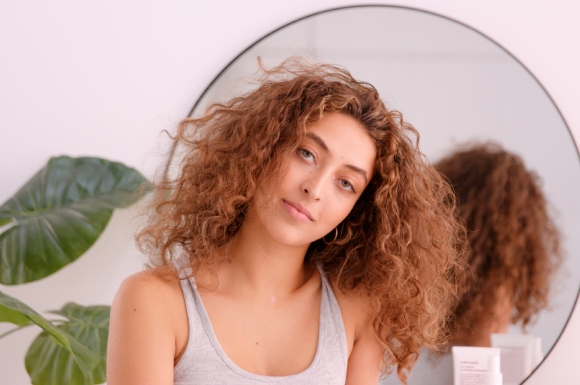did you know that different hair brushes and combs are better for certain hair types than others? no? well, it’s time to level up your brush game.
unless you’re a stylist, it’s a pretty safe bet you’ve owned the same hairbrush for several years - and can count on one hand the number of times you’ve cleaned it. sound about right? you see, for most of us, hairbrushes are a bit of an afterthought. they’re something chucked in our bags or living out their days in the bottom bathroom drawer. unlike hot tools and styling products, they aren’t something we buy multiple of, and we generally just use the same one we’ve always used.
but this could be doing your hair a serious disservice. different brushes deliver different results, and yep, you guessed it - different hair types demand different brushes. this handy guide will help you navigate the brush aisle like a pro for a well-overdue update.
benefits of brushing your hair
brushing your hair isn’t just about detangling - it’s a whole hair care moment. case in point? a decent brush has the power to…
- cause less breakage: the right brush means fewer tangles, less snapping, and fewer split ends.
- promote hair growth: a gentle brush encourages blood circulation to your scalp, and a healthy scalp means stronger, longer hair.
- provide a good base for styling: whether you’re going for sleek, voluminous, or wavvy vibes, the right brush will set the foundation for whatever style you’re working with.
but here’s the kicker: not all brushes are created equal. let’s get into the nitty-gritty and figure out how to pick the perfect brush for your hair type, because trust us, it makes all the difference
types of hair brushes and combs
each brush has its own superpower, and evo’s got a stellar range to choose from.
- radial brush: want volume or smooth curls? the radial brush is your best mate. the round shape helps create bounce while you blow-dry. when it comes to these, we’ve got three for you to choose from including, hank (best for volume), spike (great for smoothing and stretching) and bruce (top-tier for smoothing).
- paddle brush: the flat queen of brushes. ideal for long hair or getting a super sleek finish on straight hair.

- dressing brush: the multi-tasker. it’s perfect for smoothing, detangling, and even adding a bit of texture when you need it.
- teasing brush: need volume? this slim brush is all about lifting and teasing the roots. big hair, don’t care.
- wide-tooth comb: your curly-haired savior. perfect for detangling without disrupting your curls. also, a dream for damp hair.
what are the best hair brushes for each hair type
different hair types need different brushes. think of it a bit like having a wardrobe for your hair.
curly hair: the best hairbrush for curly hair? spoiler alert: it’s not a brush at all. it’s a wide-tooth comb like the roy detangling comb. this will help you detangle without tearing through those tresses. want to know how to brush curly hair without losing curls? stick to a wide-tooth comb when your hair is wet.
damaged and dry hair: opt for a boar bristle brush like the bradford pin bristle dressing brush. these bad boys distribute your hair’s natural oils from root to tip, giving you that glossy finish without causing more damage.
fine hair: wondering what is the best hairbrush for fine hair? you’re after a paddle brush like the pete ionic paddle brush or dressing brush with soft bristles that glide through your hair without yanking it out.
frizzy hair: a boar bristle brush, like conrad natural bristle dressing brush, is your friend when taming frizz. use it gently to smooth the top layers and avoid flyaways.
thick hair: curious about what is the best hairbrush for thick hair? you’ll also want a paddle brush like pete, as it can handle thick strands without causing breakage.
wavy hair: so, are you supposed to brush wavy hair? you can, but keep it minimal to avoid losing the waves. a wide-tooth comb or dressing brush can keep things smooth without flattening your waves.
normal hair: you’re lucky, friend. pretty much any brush will do for you, but a dressing brush or paddle brush will keep your hair looking fab. the bradford pin bristle dressing brush is a top all-rounder.
best hair brushes for styling
not all brushes are about just detangling; some are here to help you slay the styling game.
teasing: need to pump up the volume? a teasing brush is your best bet. it’s slim, targeted, and made for backcombing.
curly to straight: if you’ve got luscious curls you’re looking to wrangle so your strands are straight, you’ll need to add some tension to stretch your strands while blow-drying… we recommend using spike nylon pin bristle radial brush or bruce natural bristle radial brush to get the job done.
blowouts: go for a radial brush. it’s made for creating bouncy blowouts with volume and shape.
adding volume: a radial brush works here too. roll your hair around the brush as you dry for some major oomph.
curling: want soft waves? a radial brush with a medium barrel can help shape curls while blow-drying.
detangling: if your hair’s a tangled mess, a wide-tooth comb or paddle brush is your go-to. no one’s got time for breakage.
tips for choosing the right hair brush
there’s more to choosing a hairbrush than just grabbing one off the shelf. here are some faqs you might have:
what’s the difference between different bristles? boar bristles are great for distributing natural oils and smoothing the hair, while nylon bristles are good for detangling thicker hair types.
what’s the difference between a hair brush and comb? brushes are for smoothing and styling, while combs are ideal for detangling and working with wet hair.

will brushing hair stimulate hair growth? yes, brushing stimulates the scalp, which can promote hair growth. just don’t go too hard!
why is my hair brush static? try using a brush with boar bristles or invest in a wooden brush to reduce the charge.
is brushing wet hair bad? wet hair is more fragile and stretches, so be gentle and stick to a wide-tooth comb for less pulling.
are wooden brushes better for your hair? wooden brushes can be gentler on your hair and reduce static, plus they’re better for the environment.
are you supposed to brush your hair every day? not necessarily. too much brushing can cause breakage, especially if you’ve got curly or fine hair.
can brushing cause hair loss? brushing too aggressively can cause breakage, but gentle brushing won’t lead to hair loss.








